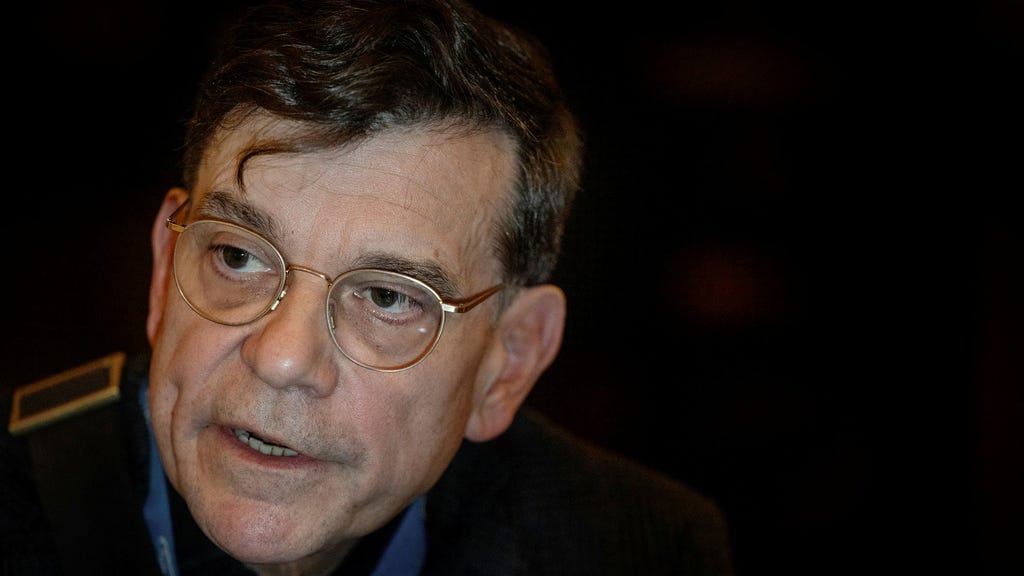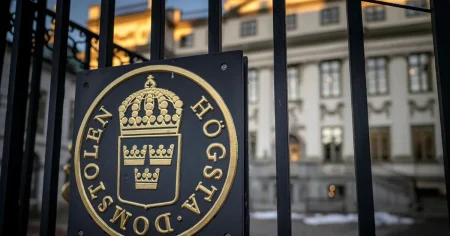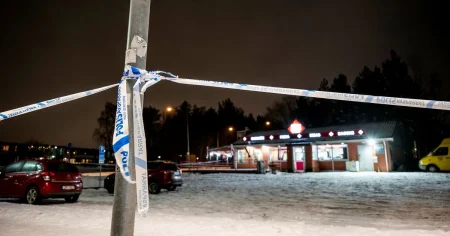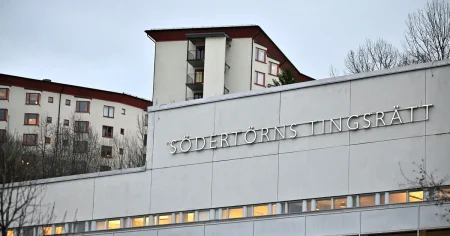Landerholm’s Security Lapses and the Ensuing Political Fallout:
A series of security incidents involving Sweden’s National Security Advisor, Henrik Landerholm, has ignited a political firestorm, culminating in a formal complaint filed against Prime Minister Ulf Kristersson. The central issue revolves around Landerholm’s mishandling of classified documents, coupled with the government’s delayed response and perceived lack of transparency in addressing the matter. The incident, first reported by DN, involved Landerholm leaving four classified documents unattended at a conference center northwest of Stockholm in March 2023. This breach of protocol prompted an internal security assessment, the details of which were initially withheld from public scrutiny.
The controversy deepened when Expressen revealed that the security assessment report was only registered in the government’s official records, or diarium, 673 days after the incident, and only after DN had requested and reported on the document. This delay raised serious questions about the government’s commitment to transparency and accountability. The Center Party subsequently filed a complaint against Kristersson with the Constitutional Committee, alleging that the delayed registration of the security assessment suggests an attempt to conceal the incident and its potential ramifications. The complaint also seeks to investigate Kristersson’s knowledge of the incident, the content of the assessment, the reasons for its delayed registration, and any decisions he might have taken regarding the matter.
Adding to the complexity of the situation, the government’s initial claim that the security assessment was not a public document and therefore did not require registration was later contradicted by their decision to release the document to the media. This inconsistency further fueled suspicions of an attempt to avoid scrutiny. The government’s security chief, Fredrik Agemark, admitted to the oversight in the registration process, attributing it to an initial misclassification of the document. However, the explanation failed to satisfy critics, who pointed to the timing of the registration, occurring only after media pressure, as evidence of a deliberate attempt to suppress information.
The political fallout from Landerholm’s security lapses extended beyond the delayed registration of the security assessment. Justice Minister Gunnar Strömmer refused to disclose when he became aware of the incident, further contributing to the perception of a lack of transparency within the government. Strömmer also declined to comment on reports that the Swedish Security Service (Säpo) was investigating whether Landerholm’s actions constituted a criminal offense, deferring to the agency’s responsibility to address such inquiries. While acknowledging the seriousness of the security breaches, Strömmer emphasized that the incidents were under internal review within the government.
This is not the first time Kristersson has faced scrutiny over his handling of matters related to Landerholm. Earlier accusations of favoritism based on personal connections between Kristersson and Landerholm have added another layer of complexity to the ongoing controversy. Critics within the Moderate Party have voiced concerns about the Prime Minister’s perceived double standard, accusing him of hypocrisy for emphasizing the importance of national security while seemingly downplaying the severity of Landerholm’s actions. Kristersson has dismissed these criticisms as "rumor-mongering," but the persistent allegations continue to cast a shadow over his leadership.
The confluence of these events – Landerholm’s security lapses, the delayed registration of the security assessment, the government’s perceived lack of transparency, and the pre-existing allegations of favoritism – has created a political storm for Kristersson’s government. The Constitutional Committee’s investigation will play a crucial role in determining the extent of Kristersson’s involvement in the handling of the security breaches and whether any deliberate attempts were made to conceal information or obstruct oversight. The outcome of this investigation could have significant implications for Kristersson’s political future and the public’s trust in his government. The entire affair underscores the importance of transparency and accountability, particularly in matters of national security, and highlights the potential consequences when these principles are perceived to be compromised.














